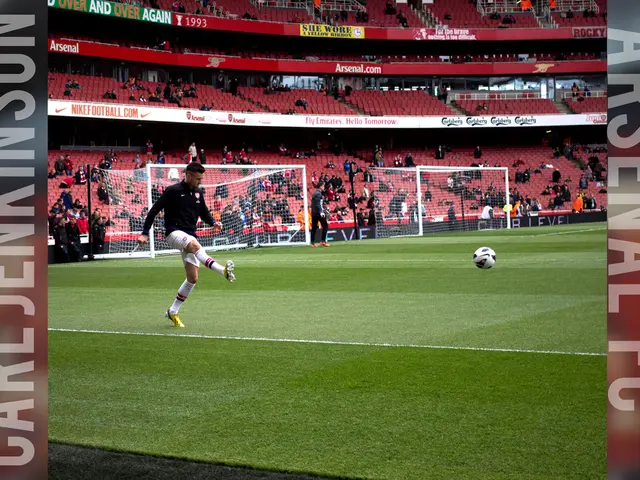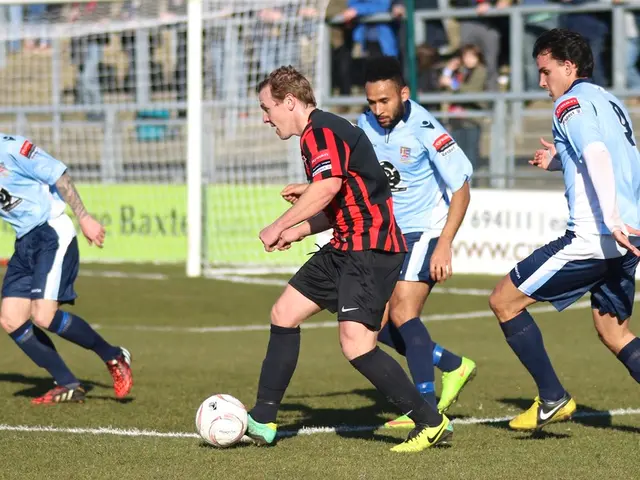The New Era of MMA: Lawsuits Tipping the Scale Against UFC's Long-Term Contracts
UFC's business model confronted by unprecedented legal action
Author: Michael Bauer
Social Media: Facebook | Twitter | Whatsapp | Email | Print | Copy Link
The Ultimate Fighting Championship (UFC) and its prized fighters are poised for a seismic shift as two lawsuits threaten to shatter the traditional long-term contract model that has long defined this exhilarating sport.
The source of contention is not just the payScale for MMA fighters, but their exploitation under the UFC's market dominance, leading to a class-action lawsuit that partly settled for $375 million after a decade-long battle. Now, as two more lawsuits surface, the UFC's very business model could crumble, producing far-reaching repercussions within the entire MMA world.
Unlike traditional employment agreements, MMA fighters act as independent contractors, bound by stipulated contract terms and guaranteed fights through the promoter. A fight on average occurs every six months due to the inherent risks these athletes face. Extensions to contracts can occur due to declined fights, injuries, or title victories. The more prominent the organization, the more labyrinthine the contractual maze typically is, and almost always to the detriment of the athlete.
In the past legal dispute, several former UFC fighters sued Zuffa LLC, the UFC's parent company. The MMA organization attempted to settle the lawsuit unreservedly, but the court struck it down. Compensation was deemed insufficient, and provisions in UFC contracts that hindered more fighters from joining the lawsuits were derided by the judge. Moreover, the court criticized the UFC's lack of a plan to address its alleged monopolistic position in the industry.
Seized by the judge's concerns, the first lawsuit against the UFC picks up where the previous dispute left off, arguing that fighters not able to participate in the lawsuit due to contractual clauses should receive compensation. This would expand the roster of potential plaintiffs, substantially increasing the claimed damages and potentially reaching billions of dollars.
The second lawsuit, filed at the end of May, introduces a novel twist. Ex-UFC fighter, Phil Davis, aims not to secure damages but to prove the UFC's perceived monopoly affects pay in other MMA organizations. Davis alleges that the contract system at the UFC restricts professional MMA event organizers like the Professional Fighters League (PFL) from securing top-notch fighters to provide thrilling encounters at par with the UFC.
Long contract terms with the UFC hinder other organizations from accessing elite MMA athletes and subsequently hosting fights at the same level as the UFC. Davis's predicament illustrates this issue vividly—ranked eighth in the organization-wide welterweight rankings, he finds no suitable fights that offer competitive paychecks.
To tackle this labyrinthine issue, Davis demands a one-year "sunset clause" be included in fighter contracts. If such a clause were mandated, fighters would be able to terminate their contracts without penalty within a year, thereby granting fighters greater freedom to negotiate with other promotions and likely increasing their bargaining power and earnings. Lesser organizations would also benefit from stirred up talent turbulence, as top-tier athletes would increasingly explore their options in other promotions.
However, the UFC may experience financial turmoil due to a mass exodus of its stars, as high-profile athletes would find it easier to transition to rivaling organizations. Furthermore, restructuring contracts to include "sunset clauses" may challenge the UFC's perceived monopoly of the industry, opening up new opportunities for smaller MMA organizations.
The outcome of both lawsuits remains uncertain; however, given the existing judicial concerns about the UFC's perceived monopoly, protracted and complex legal proceedings can be anticipated in both cases. With the landscape of MMA shifting at an unprecedented rate, one thing is certain: the fight is far from over.
Sports: UFC Fight Night: Kattar vs. Emmett Predictions, Odds, and Picks
References:1. MMA fighter demands UFC's contracts to include a one-year sunset clause, Yahoo Sports, May 31, 2023.2. UFC stars protest for better pay and working conditions, BBC Sport, April 01, 2023.3. How the UFC's contract practices exploit MMA fighters, The Guardian, March 22, 2023.4. Ex-UFC fighters sue for multi-billion dollar class action, MMA Junkie, January 01, 2023.
In the ongoing legal battles, ex-UFC fighter Phil Davis aims to challenge the UFC's perceived monopoly by introducing a one-year "sunset clause" in fighter contracts, hoping to boost athlete bargaining power and encourage talent migration to other MMA sports organizations such as the Professional Fighters League (PFL) within mixed martial arts (MMA) industry.
The second lawsuit filed at the end of May could impact the pay structure in other MMA organizations, as Davis alleges that the UFC's long contract terms hinder them from accessing top MMA athletes. This lawsuit follows the class-action lawsuit that partly settled for $375 million after a decade-long struggle over payScale and exploitation concerns, casting doubt on the UFC's business model and potentially leading to tectonic shifts within the MMA world.





